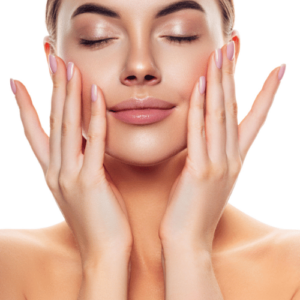Understanding yo-yo dieting and its consequences
Yo-yo dieting, which consists of cycles of losing and regaining weight, can seriously affect your health. Not only do these diets disrupt your metabolism, they can also cause lasting damage to your skin and hair, leaving them dull and lifeless. The resulting loss of muscle and increase in body fat can also make skin look flabby.
Nutritional deficiencies and their visible signs
Restrictive diets can lead to deficiencies in vitamins, minerals and essential fatty acids. These deficiencies often manifest themselves in dry skin, brittle hair and loss of energy. For example, a vitamin E deficiency can make the skin more vulnerable to external aggressions, while an iron deficiency can cause hair loss.
Adopting a balanced diet in complete safety
To return to a balanced diet without risk, it's crucial to adopt a gradual approach. Include nutrient-rich foods such as fruit, vegetables, lean proteins and whole grains. Here are some tips on how to achieve this:
- Eat antioxidant-rich foods such as berries, nuts and green vegetables.
- Incorporate quality protein sources such as chicken, fish, eggs and legumes.
- Drink enough water, at least 1.5 liters a day.
Natural tips to improve your well-being
In addition to a balanced diet, there are natural tricks to mitigate the negative effects of restrictive diets. For example, regular exercise improves blood circulation and promotes healthy skin. Good sleep is also essential for skin and hair regeneration. Practices such as meditation and yoga can help reduce stress and improve your mood.
The impact of diet on mental health
Restrictive diets affect not only the physical, but also the mental. Severe dietary restrictions can lead to frustration, anxiety and even depression. The cycle of deprivation and cravings can create a sense of failure and guilt, damaging self-esteem and general well-being.
It's crucial to remember that food is also a source of pleasure and comfort. A balanced, sustainable approach to eating helps maintain a healthy relationship with food and preserve mental health.
Moisturization, the key to healthy skin and hair
Hydration is essential for maintaining healthy skin and strong hair. Drinking enough water helps eliminate toxins, keep skin elastic and prevent dryness. Chronic dehydration can lead to dull skin and wrinkles.
To stay hydrated, drink at least 1.5 to 2 liters of water a day. Eat water-rich foods such as cucumbers, watermelons and oranges. Avoid sugary and alcoholic drinks, which are dehydrating.
The benefits of essential fatty acids
Essential fatty acids, such as omega-3 and omega-6, are vital for healthy skin and hair. They help maintain skin hydration, reduce inflammation and promote hair growth. Deficiencies in these acids can lead to dry, itchy skin and hair loss.
For an adequate intake of essential fatty acids, eat oily fish (salmon, mackerel), walnuts, flaxseed and olive oil. Omega-3 supplements may also be an option.
Healthy alternatives to restrictive diets
Rather than following restrictive diets, consider healthy, sustainable alternatives to achieve your health goals. For example, intuitive eating encourages you to listen to your body's hunger and satiety signals, rather than following strict rules.
Adopting a Mediterranean lifestyle, focused on fresh, natural foods, healthy fats and convivial meals, can also be beneficial. This approach is associated with healthy skin and a reduced risk of chronic disease.
The importance of proteins for skin and hair
Protein is essential for healthy skin and hair, helping to produce collagen and keratin. Restrictive diets can result in insufficient protein intake, which can lead to flabby skin and brittle hair.
To maintain healthy skin and hair, include quality protein sources in your diet, such as lean meats, fish, eggs, dairy products, legumes and nuts.
Vitamins and minerals for radiant skin
Vitamins and minerals are crucial for healthy, radiant skin. For example, vitamin C is essential for collagen production, while vitamin A helps skin cells regenerate. Minerals such as zinc and selenium protect the skin from free-radical damage.
For an adequate supply of vitamins and minerals, eat a variety of colorful fruits and vegetables, such as citrus fruits, berries, spinach, carrots and sweet potatoes.
Exercise for healthy skin and hair
Regular exercise is beneficial to overall health, including that of the skin and hair. It improves blood circulation, nourishes skin cells and helps eliminate toxins. Sweating can also help unclog pores and prevent acne.
What's more, exercise reduces stress, an aggravating factor for skin problems such as eczema and psoriasis. Aim for at least 30 minutes of moderate physical activity a day, such as brisk walking, cycling or swimming.
Sleep and its effects on the skin
Good sleep is essential for healthy skin. During sleep, the body repairs and regenerates skin cells, helping to maintain a youthful, healthy appearance. Lack of sleep can cause dark circles, dull skin and wrinkles.
To improve your sleep, maintain a regular schedule, create a comfortable sleeping environment and avoid screens before bedtime. Relaxing practices such as reading, meditation or a warm bath can also help.
Natural skin care
In addition to a healthy diet, natural skin care can improve skin's appearance and health. For example, homemade masks based on honey, avocado and yogurt moisturize and nourish the skin.
Essential oils such as lavender and tea tree have antibacterial and anti-inflammatory properties that are useful for treating acne. Always dilute essential oils in a carrier oil before application to avoid irritation.
The impact of hormones on skin and hair
Hormones play a crucial role in skin and hair health. Hormonal imbalances, often aggravated by restrictive diets, can cause a variety of problems such as acne, hair loss and dull skin. For example, an excess of androgens can increase sebum production, leading to acne.
For a healthy hormonal balance, eat a nutrient-rich diet and manage stress. Foods rich in omega-3, fiber and antioxidants help regulate hormones. Yoga and meditation reduce stress and promote hormonal balance.
Superfoods for healthy skin and hair
Superfoods are rich in essential nutrients for healthy skin and hair. Berries, for example, are rich in antioxidants that protect the skin against free radicals. Avocados, rich in healthy fats and vitamin E, moisturize skin and hair.
Other superfoods include nuts and seeds, rich in essential fatty acids and zinc, and green vegetables like spinach and kale, rich in vitamins A, C and K.
Probiotics and skin health
Probiotics, beneficial bacteria for the gut, play a crucial role in overall health, including skin health. They help maintain a healthy balance of intestinal flora, improving digestion, boosting the immune system and reducing inflammation.
Studies show that probiotics can help treat various skin conditions such as acne, eczema and psoriasis. Eat fermented foods such as yogurt, kefir, sauerkraut and kimchi for a sufficient supply of probiotics.
Managing stress for healthy skin and hair
Chronic stress can damage skin and hair, aggravating problems such as acne and eczema, and causing hair loss. Stress increases the production of cortisol, a hormone that disrupts hormonal balance and weakens the immune system.
To manage stress, adopt wellness practices such as meditation, yoga and regular exercise. Spending time in nature, pursuing hobbies and maintaining healthy social relationships also reduce stress.
Care routines for different skin types
Each skin type has specific needs. For example, dry skin needs moisturizing and nourishing products, while oily skin needs light, non-comedogenic products. Sensitive skin needs gentle, fragrance-free products to avoid irritation.
Mature skin can benefit from products rich in antioxidants and hyaluronic acid to reduce wrinkles. Consult a dermatologist for personalized advice on the best products and routines for your skin type.
Conclusion
While restrictive diets may seem attractive for rapid weight loss, they can have detrimental effects on your skin, hair and morale. By adopting a balanced, sustainable approach to eating, you can achieve your health goals while improving your overall well-being.
Remember that each person is unique and what works for one may not work for another. Always consult a health professional or dietician for personalized advice.


